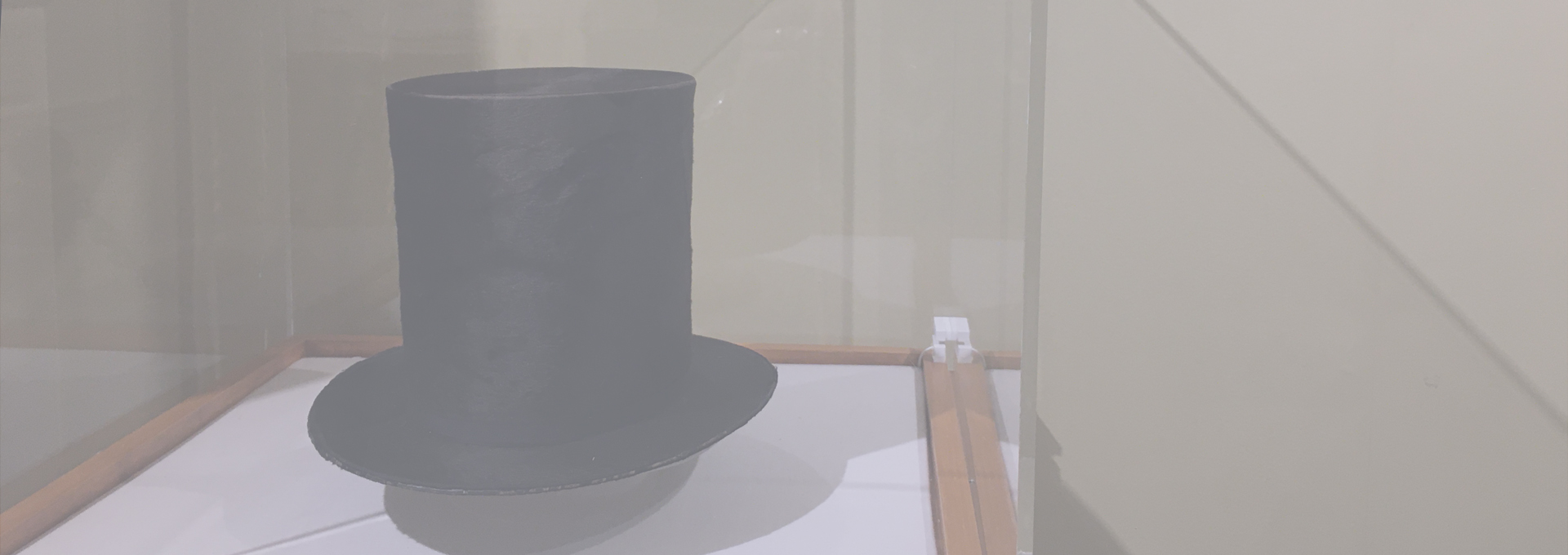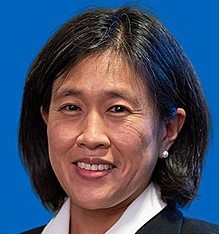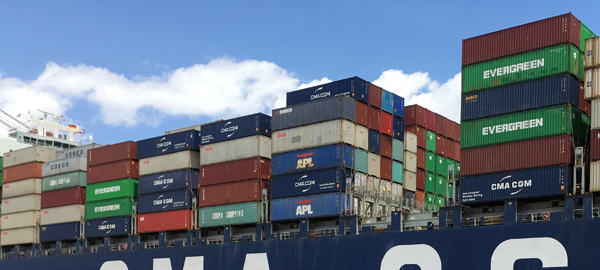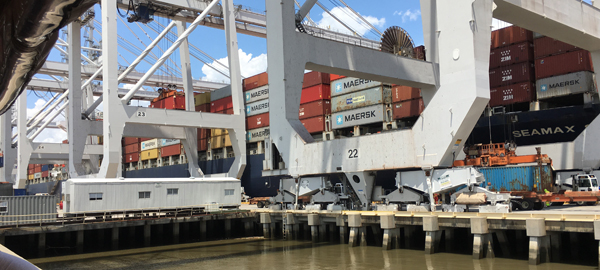
FTZ’ine June 2021
June 2, 2021FTZ’ine August 2021
August 3, 2021What’s Bugging Washington?
Brood X (pronounced “Brood 10”) has taken over your Nation’s Capital. There are 15 broods of periodical cicadas in the United States, and this one is now in every corner of the city after 17 years of hibernation. Thinking of riding your motorcycle into DC for the July 4th celebration? The FTZine staff recommends a full face shield – these things are big!
The Biden Administration just completed a delicate deal on infrastructure spending and seems focused on getting that bill passed before considering other policy issues such as trade. For example, the President’s Trade Promotion Authority lapses today without any plans for reinstatement.
CBP issued a new Withhold Release Order on a major Chinese solar panel manufacturer, and Taiwan suggested it is ready to begin free-trade agreement negotiations with the United States. That means the Biden Administration may not be able to wait too much longer before trade relations with China must rise to the top of the President’s agenda. The Administration did help align the E.U. in that effort by reaching an agreement to end all subsidies and punitive tariffs associated with the Airbus dispute.
Check out the new section of the FTZine we have added this month. We are now compiling FTZ Board Staff Action in addition to Board Action for a complete reference on official foreign-trade zone activity here in Washington. Let us know what you think!
The FTZine staff hopes all our readers have a safe and enjoyable 4th of July.

Top Story: TPA Lapse A Sign Of Administration Priorities
Tech Tip
Ever wondered why goods that are entered for consumption from an FTZ must physically leave the zone within 5 days of the entry being filed?
The answer lies in 19 C.F.R. §146.71(c): “merchandise for which a Customs permit for transfer to Customs territory has been issued must be physically removed from the zone within 5 working days of issuance of that permit”. The regulation goes on to say that the Port Director may extend that period upon request, but the goods awaiting removal “will not be further manipulated or manufactured in the zone.” This is to ensure that entry is not performed at an intermediate step of the manufacturing process when the tariff might be at a lower amount than that of the approved finished good, thus reducing the amount collected by CBP.
Sound a little confusing? Just remember that any goods on which entry summary has been filed must enter U.S. commerce, unless you have received a waiver of this 5-day rule from CBP. Even if you do have a waiver of the time limit, you must still make sure the goods are not further processed while still in your FTZ.
This highlights the need to think of all your operations up front in the activation process, and how you will handle goods if an entry is filed, accidentally or on purpose, before physically leaving your zone.
If you have questions about the 5-Day Rule, obtaining waivers, or what to do if you need to file an entry on components to be used in production later, send them to us at Info@iscm.co .


UK On A Roll: TPP Up Next After Australia FTA
E.U. And U.S. Finalize Airbus Deal, Lifting Tariffs


Next: Withold Release Orders Hit Solar Industry
Taiwan Ready To Negotiate U.S. Trade Agreement


FTZ Staff Activity
FTZ Board Activity
- Caddo-Bossier Parishes Port Commission submitted an application to reorganize FTZ 145 under the Alternative Site Framework in Shreveport, Louisiana. MORE
- XPO Logistics received authorization of production activity for wearable electronic communication/data device kitting within FTZ 72 in Clayton, Indiana. MORE
- Teijin Carbon Fibers, Inc. has extended the rebuttal comment period for its authorization for production authority within FTZ 38 in Spartanburg, South Carolina. MORE
- Bosch Security Systems, LLC received authorization of production activity for surveillance, detection, evacuation, and management systems within FTZ 38 in Greer, South Carolina. MORE
- Celgene Corporation received authorization of production activity for biopharmaceuticals within FTZ 49 in Warren and Summit, New Jersey. MORE
- Eastman Chemical Company received authorization of production activity for plastics within FTZ 204 in Kingsport, Tennessee. MORE
- Juno Therapeutics, Inc. received authorization of production activity for biopharmaceuticals within FTZ 5 in Bothell, Washington. MORE
- Mercedes-Benz U.S. International, Inc. submitted a notification of proposed production activity for electric motor vehicles and battery assemblies within FTZ 33 in Vance and Woodstock, Alabama. MORE
- Enovix Corporation received authorization of production activity for lithium-ion metal batteries within FTZ 18 in Fremont, California. MORE
- Intel Corporation submitted a notification of proposed production activity for kitting, assembly and packaging of computer electronics within FTZ 281 in Miami, Florida. MORE
- Wacker Polysilicon North America, LLC received authorization of production activity for hydrophilic fumed silica within FTZ 134 in Charleston, Tennessee. MORE
- Lam Research Corporation received approval for the expansion of subzone 18F in Newark, California. MORE
- Bauer Manufacturing LLC, d/b/a NEORig received authorization of production activity for additional components of water well drilling rigs within FTZ 265 in Conroe, Texas. MORE
- Pepperl+Fuchs, Inc. received approval to operate its facility in Katy, Texas as Subzone 84AC. MORE
- AbbVie, Inc. received authorization of production activity for pharmaceutical products within FTZ 22 in North Chicago and Lake County, Illinois. MORE
- Pensacola-Escambia County Promotion & Development Commission submitted an application to reorganize FTZ 249 under the Alternative Site Framework in Pensacola, Florida. MORE
- Airbus OneWeb Satellites North America LLC submitted a notification of proposed production activity for satellites and satellite systems within FTZ 136 in Merritt Island, Florida. MORE
- The City of Amarillo, Texas submitted an application to reorganize FTZ 252 under the Alternative Site Framework in Amarillo, Texas. MORE
- Merck & Co., Inc. received authorization of production activity for additional components of pharmaceutical products within FTZ 24 in Riverside, Pennslyvania. MORE

What’s Bugging Washington?
Brood X (pronounced “Brood 10”) has taken over your Nation’s Capital. There are 15 broods of periodical cicadas in the United States, and this one is now in every corner of the city after 17 years of hibernation. Thinking of riding your motorcycle into DC for the July 4th celebration? The FTZine staff recommends a full face shield – these things are big!
The Biden Administration just completed a delicate deal on infrastructure spending and seems focused on getting that bill passed before considering other policy issues such as trade. For example, the President’s Trade Promotion Authority lapses today without any plans for reinstatement.
CBP issued a new Withhold Release Order on a major Chinese solar panel manufacturer, and Taiwan suggested it is ready to begin free-trade agreement negotiations with the United States. That means the Biden Administration may not be able to wait too much longer before trade relations with China must rise to the top of the President’s agenda. The Administration did help align the E.U. in that effort by reaching an agreement to end all subsidies and punitive tariffs associated with the Airbus dispute.
Check out the new section of the FTZine we have added this month. We are now compiling FTZ Board Staff Action in addition to Board Action for a complete reference on official foreign-trade zone activity here in Washington. Let us know what you think! The FTZine staff hopes all our readers have a safe and enjoyable 4th of July.

